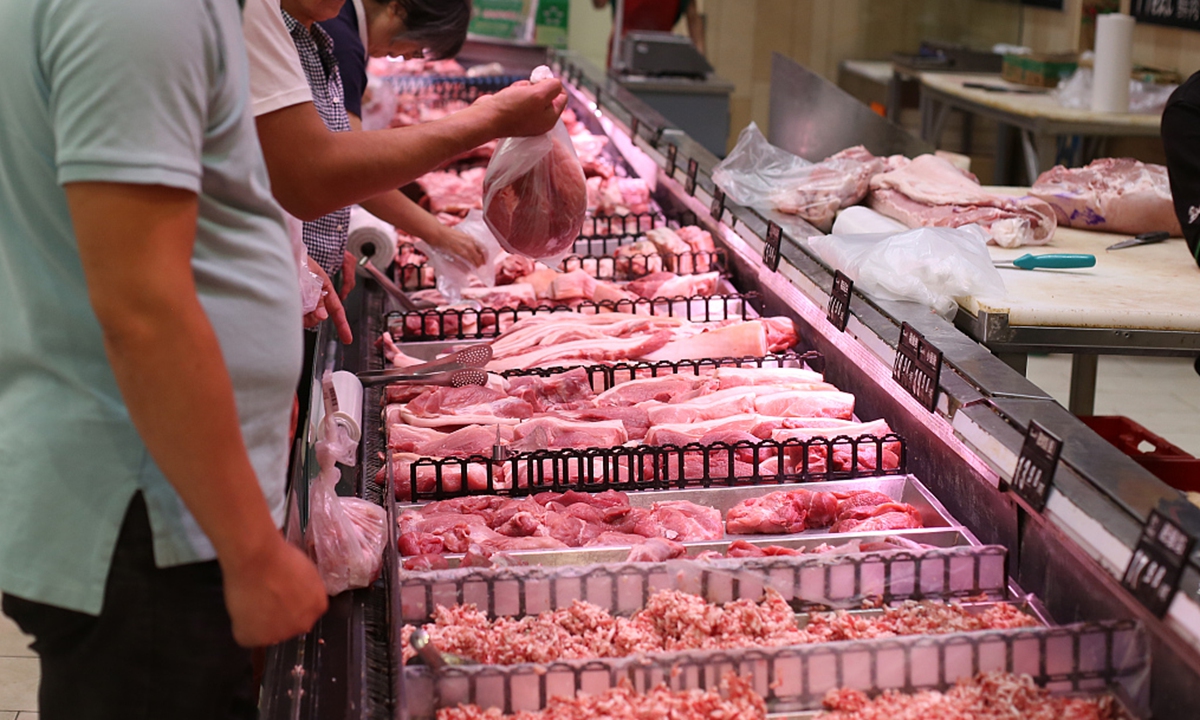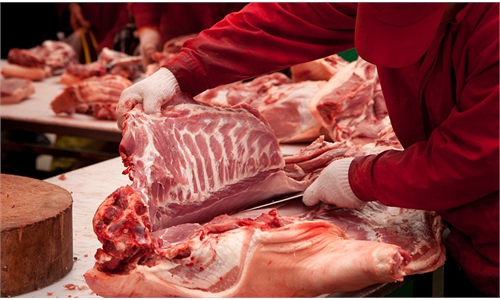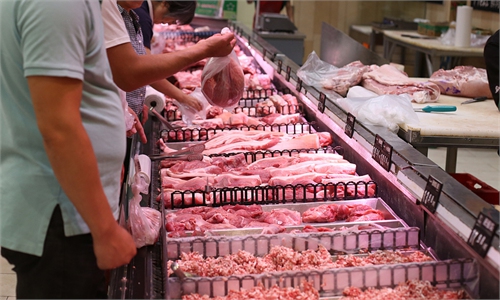Chinese mainland bans meat products from Taiwan for ractopamine concern
Taiwan opens market to US pork, beef containing ractopamine, banned in most markets

pork Photo:VCG
The Chinese mainland has banned the entry of meat products from the island of Taiwan to prevent the spread of the highly pathogenic avian influenza and consumption of meat with ractopamine, said the Taiwan Affairs Office of the State Council on Wednesday.
"To protect the health of consumers, imports of meat containing ractopamine are banned on the mainland. In view of the highly pathogenic avian influenza on the island of Taiwan, the mainland has banned the entry of meat products produced there or transported through Taiwan," said Zhu Fenglian, spokesperson of the office.
Ractopamine is added to animal feed to promote meat leanness, and its usage is banned in most countries.
Ronghui Imports Supply Management, a company based in Dongguan that used to act on behalf of vendors of Taiwan products for imports and customs clearance, confirmed with the Global Times that meat from Taiwan cannot enter Chinese mainland customs.
Analysts said that the impact on the mainland's pork supply would be tiny, and the mainland's ban on Taiwan meat products actually has a smaller impact on Taiwan enterprises than US pork and beef that contains ractopamine.
On January 1, Taiwan opened its market to imports of ractopamine-containing pork and beef from the US for a 30-month period. Mainland netizens, however, are concerned that meat containing ractopamine will flow to the mainland through the island.
"US pork prices are much lower than Taiwan's locally raised pork, which will hit the local market in Taiwan. Meanwhile, the imports of meat containing ractopamine will reduce consumers' confidence in buying pork," an agricultural analyst surnamed Ma told the Global Times on Wednesday.
Five shipments of US pork and pork products were imported by Taiwan on January 4, totaling 108.51 tons, local media reported.
Imports and exports of ractopamine and ractopamine hydrochloride have been banned since December 9, 2009 in China, according to the General Administration of Customs (GAC).
"Taiwan pork only accounted for a very small part of the Chinese mainland's consumption, thus the ban would not have much impact on China's pork supply," a postdoctoral fellow surnamed Deng at the Chinese Academy of Social Sciences told the Global Times on Wednesday.
In 2020, China imported 162.74 billion yuan ($25.2 billion) of agricultural products from the US, up 66.9 percent year-on-year. Pork saw the biggest increase, surging 223.8 percent, per data from GAC.
To prevent meat products containing ractopamine from entering the mainland market from Taiwan, the authorities have stepped up scrutiny lately, Zhu said.
"Some meat and meat products have been seized by customs from postal parcels sent to the mainland and from the baggage of passengers entering the mainland from Taiwan. All of these items have been dealt with in accordance with relevant regulations," Zhu said.
"If consumers find meat products from Taiwan on the market, they can report this to local regulators. We also encourage consumers to buy imported meat products through regular channels," Zhu noted.



